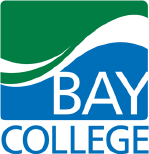Partners

Michigan Technological University is a public university committed to providing a quality education in engineering, science, business, technology, communication, and forestry. Fall 2015 total enrollment was 7,238 students, including 1,521 (21%) graduate students. Over 69% of Michigan Tech students are enrolled in engineering and technology programs. Cumulatively, the School of Technology (SOT) and College of Engineering (COE) granted 1,060 undergraduate degrees in 2014-14; 67% of total degrees. Twenty-two research centers and institutes support interdisciplinary research, partnerships with industry, and collaboration with community and informal education organizations. The SOT awards bachelor’s degrees in Computer Network & System Administration, Construction Management, Electrical and Computer Engineering Technology, Mechanical Engineering Technology, and Surveying Engineering – all degrees that require an understanding of robotics. Michigan Tech is rated highly for academics, career preparation, and quality of life in the Princeton Review’s Best 379 Colleges 2015 Edition. Michigan Tech is ranked in the top tier of national universities according to the U.S. News & World Report’s “America’s Best Colleges 2014.” Employers, especially in the Midwest, rely on Michigan Tech to deliver experiential educational opportunities; more than 350 companies recruit on campus annually, and Michigan Tech students average five interviews before graduation. Michigan Tech has a 96% job placement rate.

Bay de noc Community College: While Bay College’s racial and ethnic diversity is limited compared to other regions (Bay’s student population is 86% White, 3% Native American, and 1.5% Hispanic), the socioeconomic reality of the local area is such that many of our students enter college in a disadvantageous position. For instance, a full 58.4% of the Bay College’s student population are first-generation students. Due in part to their lack of knowledge regarding higher education and in part to their typically lesser personal support systems, studies have shown that first-generation students have one of the lowest degree completion rates of any demographic. A report published by the Higher Education Research Institute found that only 27.4% of first-generation students earn a degree after four years, compared to 42.1% of students whose parents have college experience. Pell Grant eligibility, used as a proxy for socioeconomic status, indicates that a large percentage of Bay College’s students are low income. In Fall 2015, 62% of the Bay’s student population was Pell eligible. This project will have a positive impact on student success by providing a local opportunity to receive for-credit education and training in a growing field. Students will have a clear educational pathway to either receive training and enter the workforce, or to articulate their educational experience to Michigan Tech for a more advanced degree. In either option, the clearly articulated pathway, the local availability of the program, and the student support services offered by Bay College will help students be successful in college and beyond.